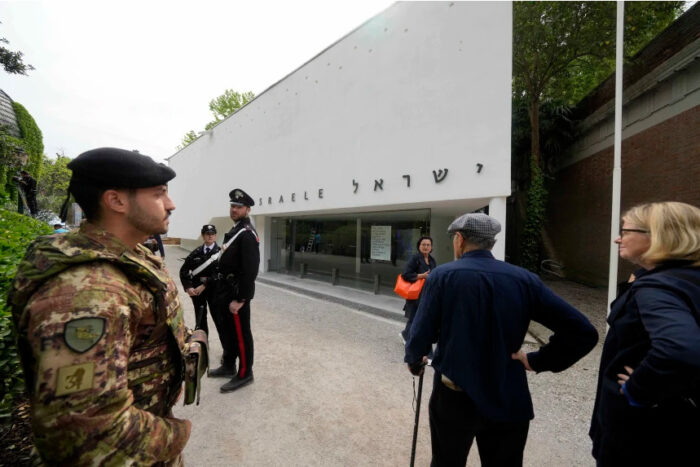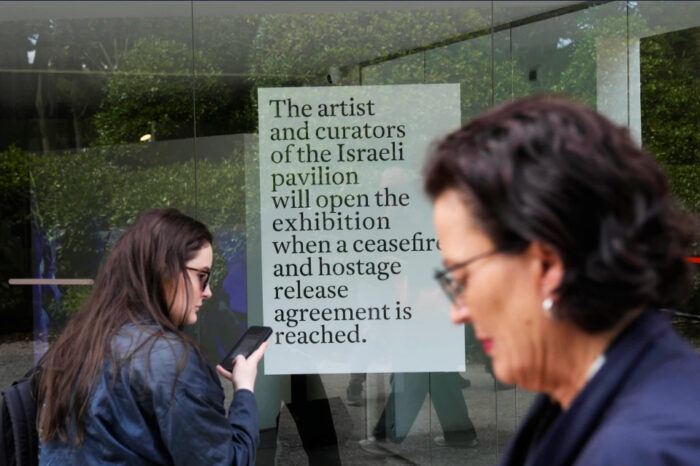
In a bold stance of solidarity, the artists and curators representing Israel at this year’s Venice Biennale have announced their decision to postpone the opening of the Israeli pavilion exhibition. This decision was made in light of the ongoing conflict in Gaza and the pressing need for a cease-fire, as well as an agreement for the release of hostages.
The announcement was prominently displayed on a sign in the window of the Israeli national pavilion on the first day of media previews, just ahead of the Biennale’s contemporary art fair opening on Saturday. Israel stands among 88 national participants in the prestigious 60th Venice Biennale, slated to run from April 20th to November 24th.
The exhibition within the Israeli national pavilion was to be titled “Motherland,” a creation by artist Ruth Patir. However, postponing the opening underscores a principled stand against the ongoing violence and strife. Despite this notable move, there has been no immediate comment from Biennale organizers regarding the postponement.

Before the preview, a significant number of artists, curators, and critics had voiced their concerns, signing an open letter urging the Biennale to exclude the Israeli national pavilion from this year’s show as a form of protest against Israel’s actions in Gaza. Additionally, those opposed to Israel’s presence had pledged to stage protests on-site.
Despite the controversy, Italy’s culture minister had publicly supported Israel’s participation in the Biennale. Nonetheless, the fair was inaugurated amidst heightened security measures.
The delayed opening announcement, written in English, stated: “The artist and curators of the Israeli pavilion will open the exhibition when a ceasefire and hostage release agreement is reached.” Nearby, two Italian soldiers stood guard, emblematic of the tense atmosphere surrounding the event.
This postponement reflects a poignant moment where art intersects with global politics, underscoring the power of artistic expression to address and engage with pressing social issues. As the Venice Biennale unfolds, it serves as a platform for showcasing artistic talent and sparking vital conversations about peace, justice, and human rights on a global scale.

